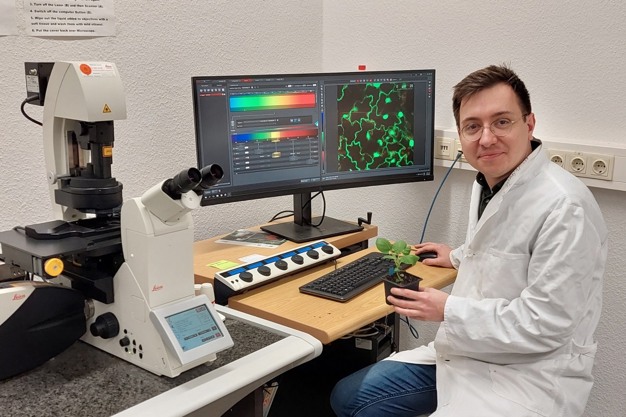Heat, dry spells, and flooding—the whole of nature is under stress, and potatoes are no exception. As a food staple, there is particular interest in getting potatoes fit for the new climate reality. As part of the EU's four-year ADAPT project, an international team led by the University of Vienna and involving the University of Bonn has now investigated how this might be done. The researchers have succeeded in defining specific characteristics and molecular reactions that could be crucial for potato cultivation in the future.

The potato is one of the most important food crops in the world. One major threat to the reliability of tuber yields and the high quality of this basic foodstuff in the future is how susceptible potato plants are to heat and dry spells—two phenomena that climate change is causing ever more frequently, either together or in succession. Periods of hot weather and drought often follow from regional flooding caused by heavy rain, which can destroy entire harvests within the space of a few days. Up until recently, however, little was known about how potatoes respond to these multiple stresses.

After four years of intense research, an international team led by the University of Vienna has now supplied some important fundamental insights into how the crop can be made to cope with climate change. This saw them take samples from potato plants during critical phases in their growth and obtain measurements to study specific characteristics and adaptive reactions at the molecular level that will help to cultivate better-adapted potato varieties in the future. In its field tests, which covered an area from Spain and Serbia to Austria and the Netherlands and involved some 50 varieties grown in a range of climatic conditions, the team identified some significant differences in the yield stability of individual varieties. Although many varieties often produce higher yields under ideal conditions, the extreme stress conditions that we have seen at times in recent years revealed that varieties whose yields tended to be somewhat smaller proved particularly stable in yield terms when placed under stress. The question that now needed answering was what made these varieties so much better at handling extreme drought and heat.

To this end, the field tests were supplemented with experiments conducted in greenhouses and laboratories, where the stress conditions can be regulated precisely and responses to stress can be observed at the cellular level—"live," as it were. At the University of Bonn, for example, the working group led by Professor Ute Vothknecht from the Institute for Cellular and Molecular Botany worked with colleagues from Durham University and Friedrich-Alexander-Universität Erlangen-Nürnberg to develop potato varieties that enable secondary messengers such as calcium to be analyzed. These are key to translating perceived changes in environmental conditions into cellular responses.

For more information:
Professor Ute Vothknecht
Universität Bonn
Tel: +49 (0)228 735999
Email: vothknecht@uni-bonn.de
www.uni-bonn.de
